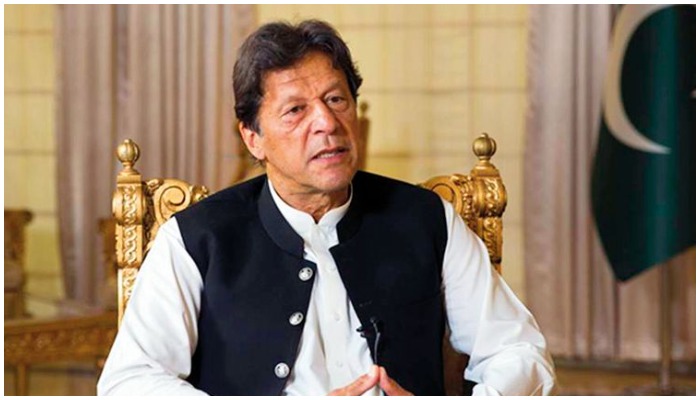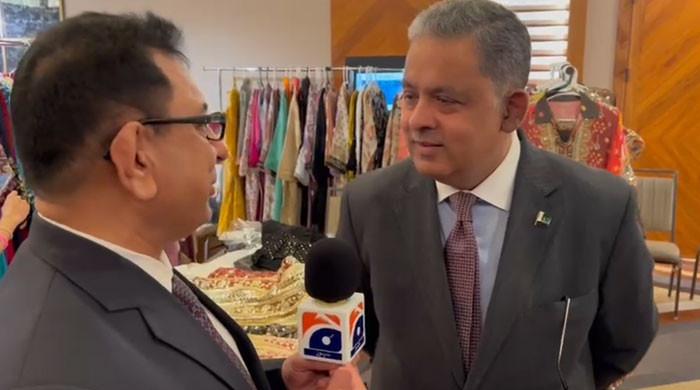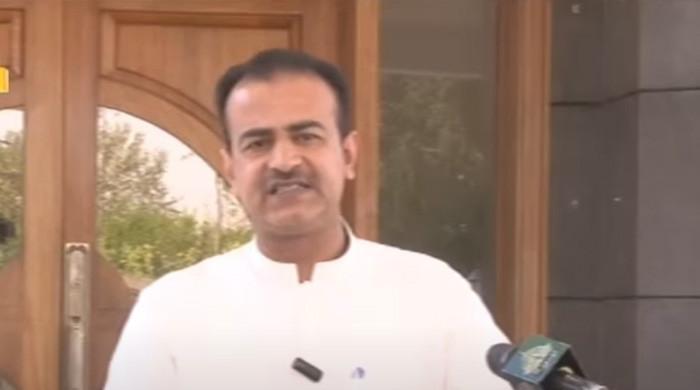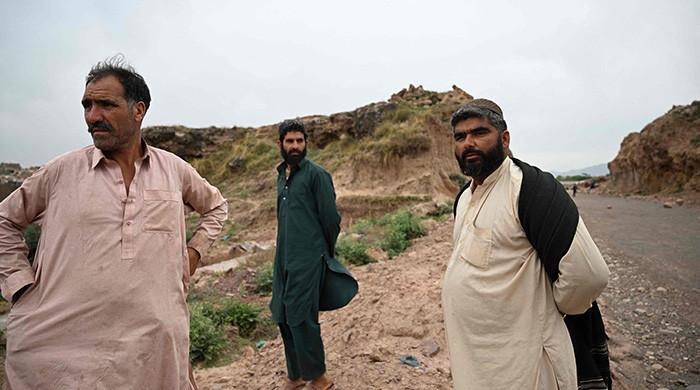Past govts tried delivering to US what they were not capable of: PM Imran Khan
PM Khan says Pakistan has always had a closer relationship with the United States than neighbouring India
June 25, 2021

- PM Imran Khan says Pakistans wants a "civilised relationship" with the US.
- Says it was Pakistan that pressurised the Taliban to hold talks with the United States as well as the Afghan government.
- Says if India had a different government, Pakistan would have had a better relationship with it.
WASHINGTON: Prime Minister Imran Khan recently gave an interview to The New York Times about Pakistan's planned future strategy once the United States leaves Afghanistan and said that in the past, the US kept expecting more from Pakistan, while previous governments "tried to deliver what they were not capable of".
Replying to a question related to Pakistan's future relationship with the US after the withdrawal of American troops from Afghanistan, PM Khan said that Pakistan has always had a closer relationship with the United States than neighbouring India.
"After 9/11, Pakistan again opted to join the US war on terror. Now, after the US leaves Afghanistan, basically Pakistan would want a civilised relationship, which you have between nations, and we would like to improve our trading relationship with the US," he said.
When asked what he meant by a "civilised" relationship, the premier said that Pakistan expects an "evenhanded" relationship which, for instance, the US holds with Britain or India at the moment.
He said that Pakistan and the US shared a rather "lopsided" relationship during the war on terror, adding that Pakistan's participation in the war claimed the lives of 70,000 Pakistanis together with a loss of over $150 billion due to the ensuing bombings and suicide attacks.
"The US kept expecting more from Pakistan. And unfortunately, Pakistani governments tried to deliver what they were not capable of," he said. "What we want in the future is a relationship based on trust and common objectives. That’s actually what we have right now with the US — I mean, our objectives in Afghanistan are exactly the same today."
When questioned about whether Pakistan will be able to retain its strategic importance to the US once it pulls out of Afghanistan, the premier said that he has "not thought about it in that way".
As for the future of the relations pertaining to military and security concerns between Pakistan and the US, PM Khan said that he does not know of that at the moment either.
"Post the US withdrawal, I don’t know what sort of military relationship it will be. But right now, the relationship should be based on this common objective that there is a political solution in Afghanistan before the United States leaves because Pakistan doesn’t want a civil war, a bloody civil war in Afghanistan."
"And I’m sure neither does the US, after it leaves, wants the country going up in flames after spending, God knows, $1 or $2 trillion. So that’s a common objective," he said.
Shedding light on Pakistan's role in the Afghan peace talks and the fear of a civil war in Afghanistan, the premier said that Pakistan has used the maximum leverage it could on the Taliban.
"Basically, Pakistan was the country that had recognised Taliban — one of three countries after 1996. Given that the United States gave a date of withdrawal, from then onward, our leverage diminished on the Taliban. And the reason is that the moment the United States gave a date of exit, the Taliban basically claimed victory. They’re thinking that they won the war. And so, therefore, our ability to influence them diminishes the stronger they feel," the PM said.
He added that it was Pakistan that pressurised the Taliban to hold talks with the United States as well as the Afghan government.
When asked if Pakistan has no more leverage left when it comes to the Taliban, the premier said that Pakistan has suggested the Taliban not to go for a military victory after the US withdrawal as it would lead to a civil war in the country.
"And the country that would be affected by civil war, after Afghanistan, would be Pakistan. We would be affected because there are more Pashtuns in Pakistan than in Afghanistan," he said.
He said that since the Taliban are primarily a Pashtun movement, it will impact Pakistan in two ways.
"One, we are scared that this will be another influx of refugees into Pakistan. Already, the country has found it very difficult to cope with three million Afghan refugees. And so there will be another influx into Pakistan."
"Secondly, our vision for the future is lifting our economy and trading through Afghanistan into Central Asia. We have signed very good trade deals with the Central Asian republics, but we can only go there through Afghanistan. If there is a civil war, all that goes down the drain," he said.
The premier also emphasised that Pakistan will only recognise a government in Afghanistan if it is chosen by the people of Afghanistan.
'I know India better than all Pakistanis'
The premier was also questioned whether Indo-Pakistan relations would improve if the Modi government leaves power. In response, he said that he "knows India better than any other Pakistani".
He said that he has had "love and respect from India [more] than anyone because cricket is a big sport".
"It’s almost a religion in both countries."
The premier said that when he became the head of the state, approaching India's Narendra Modi was the first thing he did and told him that he aims to alleviate poverty in Pakistan.
"And the best way would be if India and Pakistan had a normal, civilised trading relationship. It would benefit both countries," the PM said he told Modi.
"So we tried. Didn’t get anywhere. I think that it is a peculiar ideology of the (Hindu nationalist group) RSS, which Narendra Modi belongs to, which just came up against a brick wall. And therefore the answer to your question is yes. Had there been another Indian leadership, I think we would have had a good relationship with them. And yes, we would have resolved all our differences through dialogue."
On Kashmir
When asked if Pakistan would consider it an Indian win if Kashmir's status quo remains the same, PM Imran Khan said that it would be a "disaster for India."
"[That is because] it will just mean that this conflict festers on and on. And so as long as it festers, it’s going to stop there being any relationship — normal relationship — between Pakistan and India."
Pakistan's relations with China and the irreconcilable odds with US and India
The premier was questioned about Pakistan's relationship with China and how it affects both the US and India. In response, he said that he finds it "very odd" that China and the US would become great rivals.
"It makes no sense because the world would really benefit if the two giants, economic giants, really got along and traded with each other. So it would be a benefit for all of us."
He also said that Pakistan has no reason to choose any sides and wants to have a good relationship with everyone.
"China is the country that came to Pakistan’s help. And obviously, we’ve had a long relationship with China."
"I do not see why the US should think that India is going to be this bulwark against China. If India takes on this role, I think it would be detrimental for India because India’s trade with China is going to be beneficial for both India and China."
"So I’m just watching the scenario unfold and with a bit of anxiety," he said.











